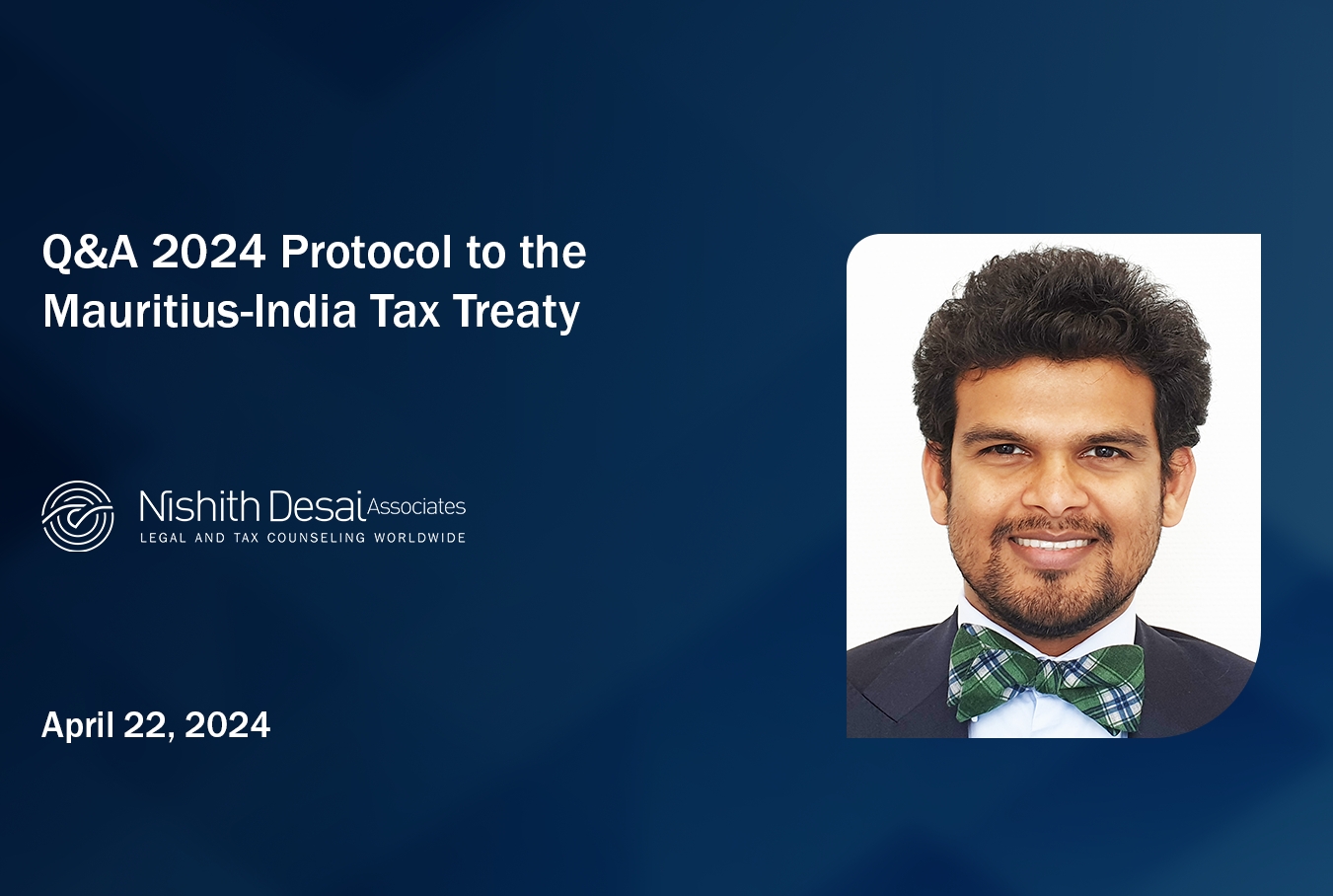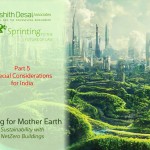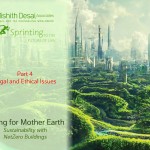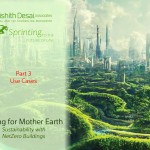Tax Hotline: Confusion Reigns Supreme: Delhi ITAT on Taxation of EPC Contracts
Posted by By nishithadmin at 30 June, at 01 : 57 AM Print
Warning: count(): Parameter must be an array or an object that implements Countable in /web/qlc/nishith.tv/htdocs/wp-content/themes/Video/single_blog.php on line 46
Warning: count(): Parameter must be an array or an object that implements Countable in /web/qlc/nishith.tv/htdocs/wp-content/themes/Video/single_blog.php on line 52
CONFUSION REIGNS SUPREME: DELHI ITAT ON TAXATION OF EPC CONTRACTS
CASE SUMMARY
In a recent decision,1 the Delhi bench of the Income Tax Appellate Tribunal had faced with the question of whether the payments made to a Swiss resident for services rendered under separate EPC contracts were taxable in India.
The taxpayer was a company which was a resident of Switzerland and was engaged in the engineering business. It had entered into three separate contracts – each executed on the same date – with its client who was a resident of India. The first two contracts required the taxpayer to: (i) supply plant and equipment; and (ii) supply drawings and designs in relation to the plant, in accordance with the client’s specifications, and subject to the client’s approval. The third contract required the taxpayer to depute its technical personnel to supervise the erection and commissioning of the equipment supplied under the first contract in India.
The following issues arose for the tribunal’s consideration. First, whether the consideration for the supply of plant and equipment could be characterised as fees for technical services? Secondly, whether the consideration for the supply of drawings and design be characterised as royalty or fees for technical services. Thirdly, whether the consideration for the supervision of the erection and commissioning of the equipment be characterised as fees for technical services, and whether they were attributable to a permanent establishment in India.
Following the decision of the Delhi High Court in the case of Linde AG,2 the tribunal held that the consideration for the supply of the plant and equipment could not be characterised as fees for technical services.
The answer to the question of how to characterise the payments for the supply of drawings and design of the equipment was not as straightforward. These drawings and designs were to be provided according to the requirements and specifications of the client. On a standalone basis, it appears that the tribunal would have characterised this as the provision of technical services. However, despite the fact they were provided under a separate contract, the tribunal observed the contracts were executed on the same date, and that that the supply of the drawings and design was inextricably linked to the sale of the plant and equipment. Therefore, it held that the payments should not be treated as being separate from the consideration for the supply of the plant and equipment. Once again, it drew authority from the Delhi High Court’s decision in Linde AG.
It is important to note that the Karnataka High Court, in the case of AEG Aktingesllschaft,3 held thatfees for “engineering services” were fees for technical services for the purposes of the Income-tax Act, 1961 as well as the Germany-India tax treaty. This appears to contradict the decision of the Delhi High Court in Linde AG., and was relied upon by the revenue authorities. However, given that Delhi bench of the tribunal is bound by the decisions of the Delhi High Court, the tribunal did not consider the decision of the Karnataka High Court as relevant for its analysis.
The court did not address the question of whether the payments for the supply of drawings and design could be characterised as royalties. It appears to have accepted the taxpayer’s argument that that characterisation would have been appropriate only if the drawings were sold on a standalone basis with a view to granting to the client the right of commercial exploitation thereof.
With respect to the third contract for the supervision of the erection and commissioning of the equipment., it was argued that these were incidental to the sale of the plant and equipment. This, it was submitted, was because the taxpayer had provided performance guarantees which required that the plant and equipment were installed correctly. Therefore, the taxpayer posited that the payments under the third contract should not be regarded as fees for technical services. It was further argued that the taxpayer’s “business profits” from these activities could not be taxed in India as it its personnel were not present at the installation site for more than 6 months, as required by Article 5(2)(j) of the Switzerland-India tax treaty. The tribunal, however, disagreed with these arguments.
According to the tribunal, the deputation of “technical personnel” reflected the technical nature of the supervisory activities establish that the taxpayer “must have imparted technical services”. Once the income is characterised as “fees for technical services”, the tribunal pronounced, “it was immaterial whether the [taxpayer] had a PE in India or not”.
NDA ANALYSIS
It is not entirely clear from the decision whether the plant and equipment were bespoke to the client’s requirements. It is also unclear from the decision whether the bespoke nature (the extent of which could vary) of the engineering services might have altered the character of the transaction from being one of a simple supply of plant and equipment to one for the provision of technical services.
It seems plausible that the plant and equipment were ordered from a catalogue of off-the-shelf products sold by the taxpayer. In such an instance, it appears to be reasonable to conclude that the first contract was simply for the sale of goods, and not for rendering an engineering service. However, those facts would seem very different from the ones in which a taxpayer renders “engineering services” of planning, designing and fabricating plants and equipment which are bespoke to the client’s specifications. It would appear, in such an instance, that the payment is not for the manufactured article, but rather for a manufacturing (technical) service.
A remarkable aspect of this decision is that it records the taxpayer making diametric arguments before the tribunal in respect of the existence of an installation PE in the context of two separate streams of income.
First, in the context of the supply of the plant and equipment, the taxpayer contended that even if the income were characterised as fees for technical services, it should not be taxable in India. As recorded at paragraph 9 of the decision, it was argued that the taxpayer had an installation PE in India under Article 5(2)(j) as the supervisory activities with respect to the installation of the equipment lasted for more than 6 months. Article 12(6) of the treaty, it was argued (incorrectly), required the rules of Article 7 to be applicable if the taxpayer had a permanent establishment in India. Given that the design and fabrication of the plant and machinery was carried on in Switzerland, it was argued that the income was not attributable to the installation PE and could not be taxed in India. This line of reasoning is incorrect at best, as Article 12(6) deals with only those fees for technical services which arise from contracts which are effectively connected with a PE in India.
Secondly, in the context of the supervisory activities themselves, the tribunal records, at paragraph 21, the taxpayer’s argument that the supervisory activities lasted for less than 6 months, thus not constituting an installation PE in India. It is astonishing that the tribunal, as the final fact-finding authority in income tax cases, did not resolve this contradiction. On the contrary, it decided that the existence of a PE was immaterial to the taxation of fees for technical services. It is respectfully submitted that this conclusion is incorrect. Article 12(2) allows fees for technical services to be taxed on a gross basis. If, however, the fees for technical services are attributable to a PE in India, Article 12(6) provides that the rules of Article 7 should apply to the taxation of such fees for technical services. Unlike Article 12(2), Article 7 deals, not with gross income, but with “profits attributable to a PE”, which generally results in income being taxed on a net basis.
This decision leaves much to be desired and should not be relied on as an authoritative precedent with respect to the taxation of income from EPC contracts. Currently, no appeals are pending currently before the supreme court on the issue of whether payments for the supply of plant and equipment qualify as fees for technical services. However, the existence of two contrasting decisions of the Karnataka and Delhi High Courts on the issue suggests these issues are likely to remain litigious until the Supreme Court of India settles them.
– Anirudh Srinivasan & Dr. Dhruv Janssen-Sanghavi
You can direct your queries or comments to the authors.
1SMS Concast AG v. DDIT, Circle-2(2), ITA No.1361/Del/2012.
2Linde AG, Linde Engineering Division v. DDIT, [2014] 224 Taxman 43 (Delhi).
3AEG Aktingesllschaft v. CIT, [2004] 267 ITR 209.
Chambers and Partners Asia Pacific 2023: Top Tier for Tax, TMT, Employment, Life Sciences, Dispute Resolution, FinTech Legal
Legal 500 Asia Pacific 2023: Top Tier for Tax, TMT, Labour & Employment, Life Sciences & Healthcare, Dispute Resolution
Benchmark Litigation Asia Pacific 2023: Top Tier for Tax, Labour & Employment, International Arbitration
IFLR1000 2022: Top Tier for M&A and Private Equity
AsiaLaw Asia-Pacific 2022: Top Tier for Tax, TMT, Investment Funds, Private Equity, Labour and Employment, Dispute Resolution
FT Innovative Lawyers Asia Pacific 2019 Awards: NDA ranked 2nd in the Most Innovative Law Firm category (Asia-Pacific Headquartered)
RSG-Financial Times: India’s Most Innovative Law Firm 2019, 2017, 2016, 2015, 2014
DISCLAIMER
The contents of this hotline should not be construed as legal opinion. View detailed disclaimer.






